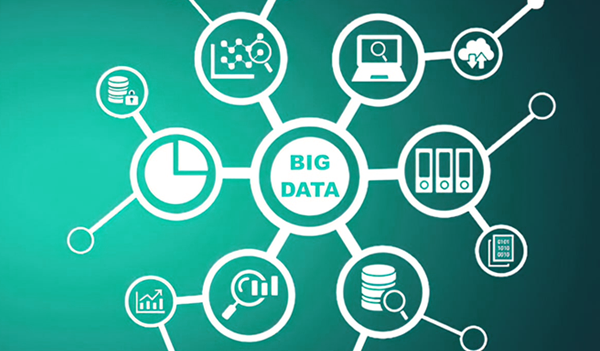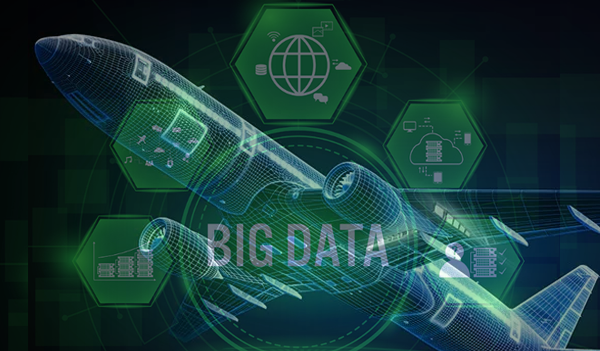The Airline industry is a complex and ever-evolving ecosystem that involves various components, including airlines, airports, aircraft manufacturers, and service providers.
With the advent of new technologies and the increasing amount of data generated in this industry, the use of big data and analytics has become crucial in improving efficiency, reducing costs, enhancing safety, and improving customer experience.
In this article, we will explore the impact of big data in the Airline industry and some examples of how analytics is transforming the sector.
Understanding Big Data in Aviation Industry
The aviation industry generates massive amounts of data every day, ranging from flight schedules, passenger information, maintenance records, fuel consumption, weather patterns, and air traffic data.
According to IBM, the Airline industry generates over 2.5 quintillion bytes of data every day, making it one of the most data-rich industries globally. Big data refers to the ability to analyze, process, and extract insights from this vast amount of data to gain a competitive edge and drive better business decisions.
The use of big data in the Airline industry has several benefits, including:
- Enhancing Safety: Airlines can use big data analytics to improve safety by identifying patterns in maintenance data, pilot behavior, and weather patterns to detect potential risks and prevent accidents.
- Improving Operational Efficiency: Big data analytics can help airlines optimize their operations by predicting passenger demand, reducing fuel consumption, and minimizing delays.
- Enhancing Customer Experience: Airlines can use big data analytics to personalize customer experiences, from customized offers to personalized in-flight entertainment options.
- Reducing Costs: Big data analytics can help airlines identify areas where costs can be reduced, from optimizing flight routes to reducing fuel consumption.
Examples of Big Data Analytics in the Airline Industry
1. Predictive Maintenance
Airlines can use big data analytics to predict when maintenance is needed on aircraft engines, reducing maintenance costs and minimizing downtime. By analyzing historical data, airlines can identify patterns in engine wear and tear, identify potential issues before they occur, and schedule maintenance accordingly.
2. Route Optimization
Airlines can use big data analytics to optimize flight routes based on factors such as weather patterns, air traffic, and fuel consumption. By analyzing historical data, airlines can identify patterns in flight paths and optimize routes to reduce fuel consumption and minimize delays.
3. Customer Personalization
Airlines can use big data analytics to personalize customer experiences, from customized offers to personalized in-flight entertainment options. By analyzing customer data, airlines can understand their preferences and offer tailored experiences that meet their needs.
4. Predicting Flight Delays
Airlines can use big data analytics to predict flight delays by analyzing historical data on weather patterns, air traffic, and previous flight schedules. By predicting delays in advance, airlines can inform customers and minimize the impact of delays on their travel plans.
Challenges in Implementing Big Data Analytics in Airline Industry

While the use of big data and analytics in the aviation industry has several benefits, there are also challenges that need to be addressed, including:
- Data Quality: The accuracy and quality of data are crucial for big data analytics to be effective. However, data in the Airline industry is often scattered across various systems, making it difficult to ensure data quality and consistency.
- Data Integration: Integrating data from various sources, such as airlines, airports, and service providers, can be a challenge, as the data is often stored in different formats and systems.
- Data Security: With the increasing amount of data generated in the Airline industry, there is a growing concern about data security and privacy. Airlines need to ensure that the data collected is secure and compliant with regulations such as GDPR and CCPA.
- Skilled Workforce: The effective use of big data analytics requires a skilled workforce that can analyze and interpret data effectively. However, there is a shortage of skilled professionals in the field of big data analytics, and airlines need to invest in training and development programs to bridge this gap.
F.A.Q
What is Big Data in Airline Industry?
Big Data refers to the ability to analyze, process, and extract insights from vast amounts of data generated in the Airline industry. This data can range from flight schedules, passenger information, maintenance records, fuel consumption, weather patterns, and air traffic data.
The effective use of big data can bring significant benefits to airlines, airports, and service providers, such as enhancing safety, improving operational efficiency, enhancing customer experience, and reducing costs.
How is Big Data Analytics used in the Airline Industry?
Big Data Analytics is used in the Airline Industry to extract insights and patterns from vast amounts of data generated in this sector. Airlines can use big data analytics to optimize their operations by predicting passenger demand, reducing fuel consumption, and minimizing delays.
Big data analytics can also be used to enhance safety by identifying potential risks and preventing accidents. Furthermore, airlines can use big data analytics to personalize customer experiences, from customized offers to personalized in-flight entertainment options.
What are some examples of Big Data Analytics in the Airline Industry?
There are several examples of Big Data Analytics in the Airline Industry, such as Predictive Maintenance, Route Optimization, Customer Personalization, and Predicting Flight Delays. Predictive Maintenance involves using big data analytics to predict when maintenance is needed on aircraft engines, reducing maintenance costs and minimizing downtime.
Route Optimization involves using big data analytics to optimize flight routes based on factors such as weather patterns, air traffic, and fuel consumption. Customer Personalization involves using big data analytics to personalize customer experiences, from customized offers to personalized in-flight entertainment options. Predicting Flight Delays involves using big data analytics to predict flight delays by analyzing historical data on weather patterns, air traffic, and previous flight schedules.
What are the challenges in implementing Big Data Analytics in the Aviation Industry?
While the use of Big Data Analytics in the Airline Industry has several benefits, there are also challenges that need to be addressed, such as data quality, integration, security, and the shortage of skilled professionals. The accuracy and quality of data are crucial for Big Data Analytics to be effective. However, data in the Airline industry is often scattered across various systems, making it difficult to ensure data quality and consistency.
Integrating data from various sources, such as airlines, airports, and service providers, can also be a challenge, as the data is often stored in different formats and systems. With the increasing amount of data generated in the Airline industry, there is a growing concern about data security and privacy. Finally, the effective use of Big Data Analytics requires a skilled workforce that can analyze and interpret data effectively.
Conclusion
In conclusion, the Airline industry generates massive amounts of data every day, and the effective use of big data and analytics can bring significant benefits to airlines, airports, and service providers. From enhancing safety to improving operational efficiency, big data analytics has the potential to transform the Airline industry in numerous ways.
However, there are challenges that need to be addressed, such as data quality, integration, security, and the shortage of skilled professionals. As the Airline industry continues to evolve, the effective use of big data and analytics will become increasingly important in driving business decisions and improving customer experience.
Read ALso:
